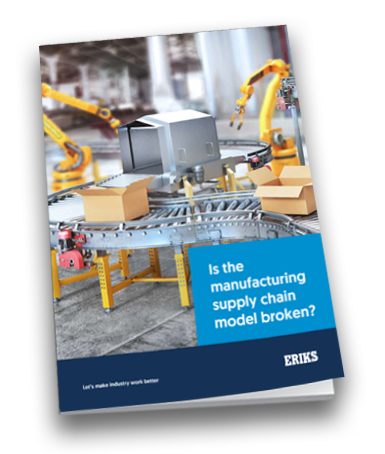In this article
Supply Chain Globalisation v Regionalisation
As early as February this year, Fortune reported that the coronavirus has caused disruption to the supply chains of 94% of Fortune 1000 companies. Since then, as the pandemic accelerated through the Spring months and then ebbed and surged around the world, we’ve seen ever greater disruption to companies large and small.

The initial focus for industrial businesses was to find alternative sources of supply, while managing the expectations of customers and, in many cases, dealing with dramatic fluctuations in demand. Now, with coronavirus an accepted fact of life, companies are beginning to consider how to build far more robust and agile supply chain models, which will underpin future growth.
Turning from globalisation to regionalisation
In many respects, coronavirus has simply accelerated a process that had been underway for some time, of reviewing and potentially restructuring the inherent nature of global supply chains. This has been driven by factors such as geopolitical pressures, climate change, the growth of the Internet of Things (IoT) and the increasing rate at which consumer demand can fluctuate – including the expectation for products to be delivered next- or same-day.
Andrew Lahy, a Director at the PARC Institute for Manufacturing, Logistics and Inventory, University of Cardiff, was recently reported by the Institute of Chartered Accountants as saying, “There was already a general trend to change the supply chain. But the pandemic has forced the issue and made companies realise how susceptible and vulnerable global supply chains are when you rely on products that need to move thousands of miles before they get to your customers.”
As a result, many industrial companies are rapidly pivoting away from extended global networks. These typically have interconnected and interdependent groups of manufacturing and distribution organisations in countries or regions that might have low-cost labour rates but also carry increasingly high levels of risk.
The traditional model is being replaced with one where regionalised logistics hubs close to the point of demand are prevalent, enabling manufacturers to source from local component and sub-system suppliers and product integrators. In many respects, although low costs may partly need to be sacrificed for security and adaptability of supply, this model is likely to prove more resilient in the face of future short-term shocks and longer term economic, climate or societal change.
E-commerce and direct delivery
The combined tends that we’ve seen in consumer market, with the explosion in on-line sales and the expectation of same- or next-day delivery, are also being replicated in the industrial sector.
Increasingly, manufacturing companies are buying standard components and commodity parts via suppliers’ e-commerce web sites. For example, at ERIKS we’re seeing a growth in online orders, with a corresponding fall in over-the-counter sales. This is prompting a change in our delivery methods, with goods being shipped overnight direct to each customer, rather than being routed through our local centres in the UK.
The changes, however, go far beyond the adoption of an e-commerce model. Indeed, for many industrial businesses where the requirement from the supply chain is for high volume parts, kits of parts delivered direct to lineside, custom-engineered assemblies or a unique combination of these factors, then a different approach is required.
This is where the advantage of working with an industrial supply chain specialist such as ERIKS can become increasingly important, both to minimise the risks that have been exposed by coronavirus and to provide the resilience, agility and security required to drive future business growth.
Focussing on primary business goals
Industrial businesses are generally built around a primary goal of delivering product or service excellence, with the business oriented to meet customer expectations of, for example, performance, reliability, innovation or quality.
Traditionally, supply chain management has been one of a number of processes designed to help each business realise its primary goals. The traditional model, however, is changing; as the Institute of Management Development (IMD) recently reported, ‘The supply chain has become a main protagonist everywhere, it has moved from playing a behind the scenes organisational role to being a prime driver of the company business.’
The IMD went on to point out that the traditional industrial model is to produce in volume, but that as the world adapts to the post-Covid-19 reality, with heightened levels of economic, political and climatic uncertainty, then manufacturers will need business and supply chain models that are truly agile if they are to remain profitable. This will involve real-time supply chain monitoring, increased use of remote diagnostics and intervention where necessary by skilled managers; all of which will detract from the primary business goal.
Redressing the Balance
At ERIKS, we are working with customers to help them redress the balance. For example, we take responsibility for managing key aspects of each customer’s supply chain; this might include the creation of dedicated logistics functions, with on-site stores management, or the development of sophisticated predictive maintenance systems for critical machinery, designed to maximise uptime, while minimising operating costs.
Our goal throughout is to allow each customer to focus on delivering business excellence – to focus on their core business purpose – secure in the knowledge that their supply chain is being managed to the benefit and not the detriment of the business.
To find out more, talk to one of our logistics experts today or contact your local ERIKS Service Centre. Alternatively, you can download our latest white paper on supply chain disruption above.
#ERIKS #LetsMakeIndustryWorkBetter #IndustrialSupplyChain #SupplyChainManagement #COVID19
Download a copy of our whitepaper


